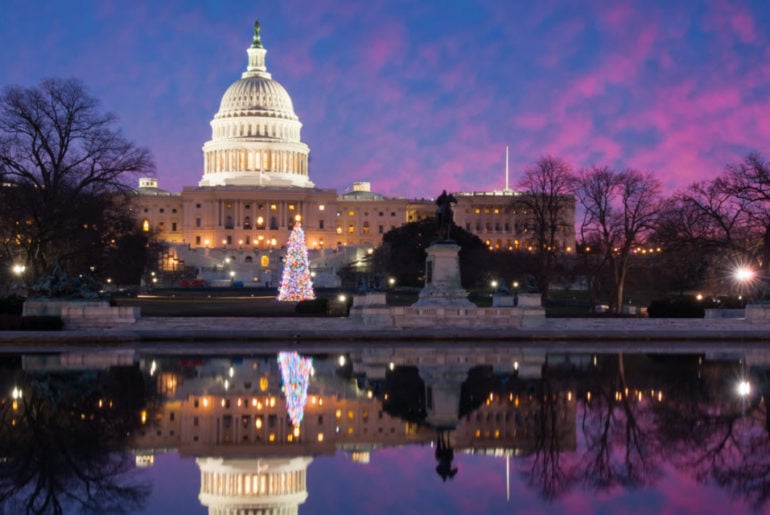On 1 December 2023, the US Court of Appeals for the Fourth Circuit reversed a Sherman Act conviction of a former executive of an aluminum products manufacturer for failure to state a per se antitrust offense. While DOJ is considering en banc review of this opinion, if upheld the decision could have lasting implications for how the DOJ proceeds with indictments involving parties that engage in dual distribution. We will continue to monitor for future developments in this case as it moves forward.
For months, Treasury’s attention may have been focused on guidance implementing the Inflation Reduction Act, particularly the green energy provisions. Seasoned tax professionals know better than to let their guards down as fall turns to winter, however. Treasury and the IRS are notorious for releasing a flurry of guidance before the new year, often addressing imminent deadlines or tidying up loose ends.
If your organization does business across the US and collects consumer health data (broadly defined, health inferences generated from non-health data count), compliance with US state consumer health privacy laws is just around the corner. Consumer health privacy laws in Nevada (Senate Bill 370) and Washington (the My Health My Data Act) become fully operative for regulated entities on 31 March 2024. Requirements specific to consumer health data are already operative in Connecticut.
Two recent tax controversies demonstrate the authority of US courts in situations where a taxpayer’s assets are held in a country different than the taxpayer’s country of residence. In United States v. Kelly, a US person held assets in a Swiss bank account and failed to file a Foreign Bank Account Report (FBAR), and the court ordered repatriation of those assets to the United States. In Puri v. United States, an Indian taxpayer held assets in a US bank account, and the United States Supreme Court denied certiorari, finalizing the district court’s order that denied taxpayer’s motion to quash an administrative third-party summons issued by the IRS.
In July this year, the European Commission adopted an adequacy decision for the EU-US Data Privacy Framework. The decision allows the free flow of data from the European Union to the United States if US companies abide by the Framework. It is likely that the Commission will soon look at adopting adequacy decisions for African countries, in addition to other regions, with such decisions expected to have applicability for those countries that have developed privacy laws that are modeled, fully or partially, on the European Union’s General Data Protection Regulations or the earlier EU Data Protection Directive (1995).
Chapter 22.8 of the California Business and Professions Code imposes requirements on social media companies with annual gross revenues of USD 100 million or more to submit “terms of service reports” to the California Attorney General, with the first report due by 1 January 2024. The statute is currently the subject of a constitutional challenge, but covered companies should not delay preparing reports in case the lawsuit drags on or is unsuccessful.
On Tuesday, 23 January 2024 we are hosting an in-person client event in our New York office on Generative AI: Harnessing the Power and Mitigating Risk. The program includes an exciting in-house counsel panel featuring key speakers from Calix, Wolters Kluwer and Tiffany & Co. We’ll also hear from a cross-discipline Baker team who will discuss legal and regulatory considerations and mitigating risk when using Gen. AI,
Please join Baker McKenzie and ICPA for a fireside chat with Assistant Secretary Axelrod (U.S. Department of Commerce’s Bureau of Industry and Security) where he will share his insights on what to expect in the year ahead for export enforcement. Assistant Secretary Axelrod will provide his perspectives on Bureau of Industry and Security priorities and the multilateral enforcement framework that is emerging globally.
The US Securities and Exchange Commission (SEC) recently adopted amendments to the rules governing beneficial ownership reporting under Sections 13(d) and 13(g) of the Securities Exchange Act of 1934, as amended. Among other changes, the amendments accelerate the deadlines for initial and amended Schedule 13D and Schedule 13G filings. The amendments will become effective on February 5, 2024. However, compliance with the revised Schedule 13G filing deadlines will not be required until September 30, 2024.
The United States Federal Trade Commission (FTC) has again shown that social media influencers, endorsements and testimonials remain an enforcement priority. The FTC sent warning letters to two trade associations and several dieticians and other online health influencers to make clear that failure to include clear disclosures that these are paid endorsements may violate the law.


